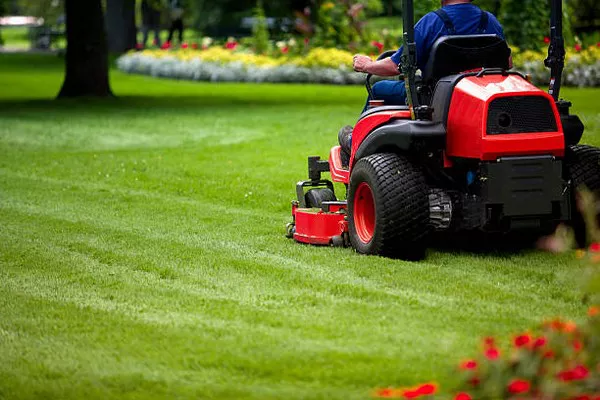Lawn mowers play a significant role in maintaining the beauty and health of our lawns. However, like all mechanical equipment, lawn mower engines have a limited lifespan and may eventually need to be replaced or disposed of. The proper disposal of lawn mower engines is crucial for environmental sustainability and public safety. In this article, we will explore the various options available for managing old or damaged lawn mower engines in a responsible and eco-friendly manner.
1. Inspection and Evaluation
Before making any decisions about the lawn mower engine, it’s essential to conduct a thorough inspection and evaluation. Determine if the engine is repairable or if it has reached the end of its useful life. If it can be fixed and brought back to working condition, consider repairing it to extend its lifespan and reduce waste.
2. Selling or Donating Functional Engines
If the lawn mower engine is still in good working condition but no longer needed, consider selling or donating it. Many people may be interested in purchasing a used engine for their lawnmowers or other projects. Online marketplaces, classified ads, and community forums can be excellent platforms for finding potential buyers. Additionally, local charitable organizations or community groups may welcome donations of functional engines for community maintenance projects or educational purposes.
3. Recycling
Recycling is one of the best ways to manage old lawn mower engines responsibly. Engine parts are often made from valuable materials like steel, aluminum, and various metals. Recycling not only conserves natural resources but also reduces the demand for new materials, thereby lowering energy consumption and greenhouse gas emissions.
To recycle a lawn mower engine, follow these steps:
a. Drain Fluids: Before recycling, remove any gasoline, oil, or other fluids from the engine. Dispose of these fluids properly at a local hazardous waste facility to prevent environmental contamination.
b. Dismantle the Engine: Disassemble the engine into its various components, separating the metal parts from non-metal parts like plastic covers, gaskets, and filters. This step aids in the recycling process and ensures a higher recovery rate of materials.
c. Contact Recycling Facilities: Reach out to local recycling centers or scrap metal yards to inquire about their acceptance of lawn mower engines. Some centers might accept the engines directly, while others may require you to drop off the dismantled parts separately.
d. Follow Local Regulations: Be aware of any local regulations or guidelines pertaining to the disposal and recycling of small engines. Compliance with these rules helps to protect the environment and avoid potential penalties.
4. Responsible Disposal
If recycling facilities are unavailable in your area, or if the engine is no longer salvageable, responsible disposal is the next best option. However, avoid placing the engine with regular household waste or dumping it in landfills, as this can lead to environmental contamination and potential legal consequences. Instead, follow these steps for responsible disposal:
a. Check Local Collection Services:
Some municipalities offer special collection events for disposing of small engines and other hazardous waste. Check with your local waste management department to find out if such services are available in your area.
b. Authorized Dealers and Retailers:
Many manufacturers or dealerships have take-back programs where they accept old lawn mower engines. They often ensure proper disposal or recycling of the equipment.
c. Scrap Yards:
If recycling facilities are not available, check with local scrap yards or junkyards that might accept old engines. However, make sure they adhere to proper environmental practices and do not engage in illegal dumping.
5. Upcycling and Repurposing
If you enjoy DIY projects and have a creative streak, consider upcycling or repurposing old lawn mower engines. Transforming the engine into a decorative piece, garden ornament, or even a unique piece of furniture can add character and personality to your outdoor space.
Conclusion
Proper disposal and recycling of lawn mower engines are essential to minimize environmental impact and promote sustainability. Whether through repairing, selling, recycling, or repurposing, responsible management of old lawn mower engines can contribute significantly to reducing waste and conserving valuable resources. By adopting these eco-friendly practices, we can preserve the beauty of our lawns while safeguarding the environment for future generations.

